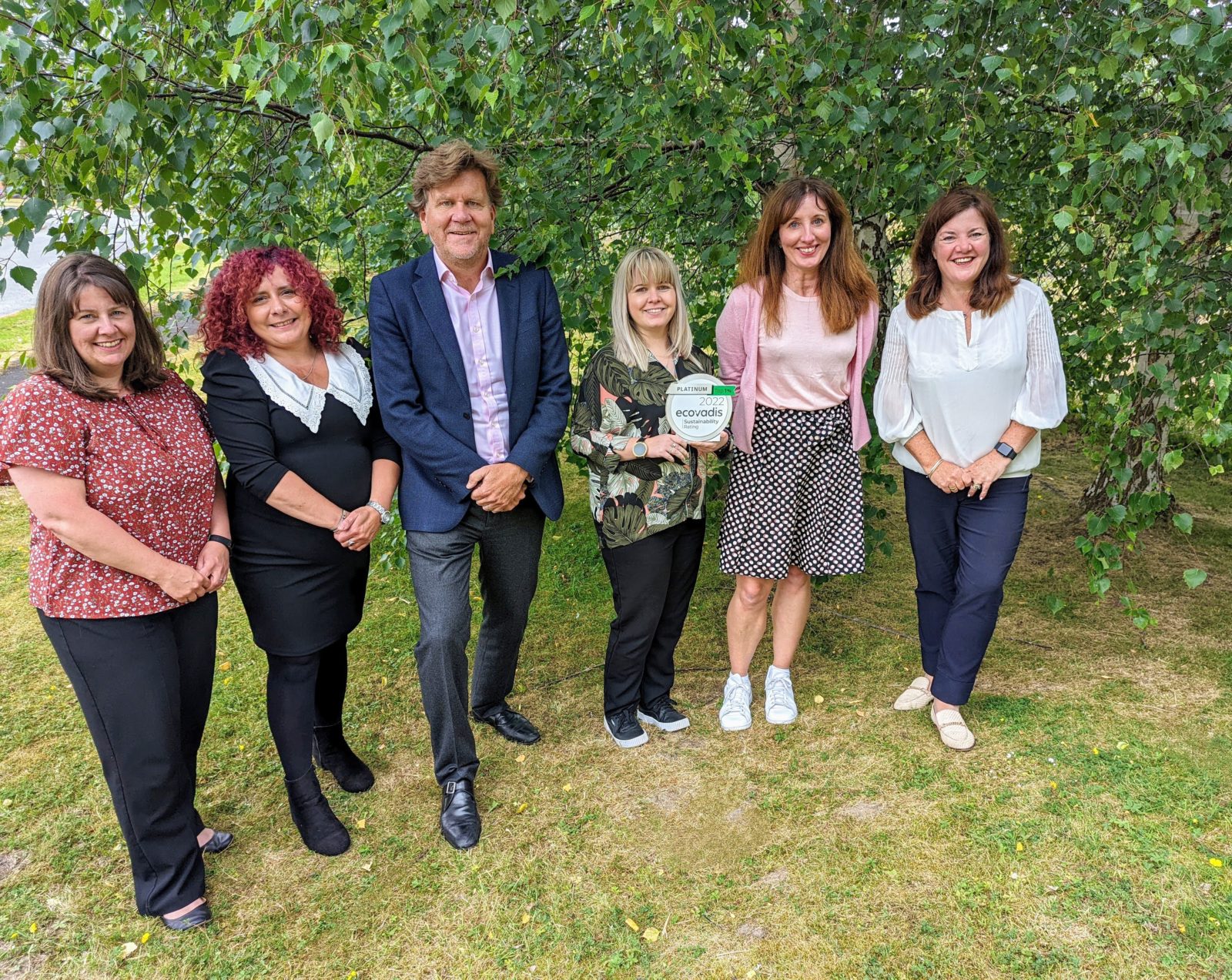Flint headquartered sustainable wet-wipe manufacturer Nice-Pak, has received the highest Platinum rating for its sustainability achievements.
EcoVadis, the world’s most trusted provider of business sustainability ratings, has placed Nice-Pak in the top one percent of over 90,000 companies across over 200 industries in over 175 countries. The company’s sustainability policies, initiatives and results were analysed according to 21 criteria across four categories including environment, labour & human rights, sustainable procurement and ethics.
Robert Woodall, Managing Director at Nice-Pak International, said: “Nice-Pak have extended our leadership position by putting our bold environmental and ethical commitments into action at a global level. Sustainability forms part of our core values, it is essential to the long-term vision of our business and indeed the future of the wipes industry.
“We deliver sustainable solutions that our customers can trust. By pioneering innovations in sustainable products and packaging we support our own and our customers’ corporate and ethical ambitions. We are thrilled that our business, which is underpinned by sustainable business practices, has been recognised in this way. Special thanks to our teams who work tirelessly for continuous improvement.”
Producing wipes for 7 out of the top 10 of the leading personal care brands, Nice-Pak has successfully partnered with brands and retailers to launch plastic-free wipes, meaning that the majority of products supplied to the UK market are sustainable and free from plastic.
With an overall score of 76/100 the company reached the top 1 percentile, indicating sustainability performance has improved at a faster pace than the network average. Key improvements since last year’s gold rating have been made across the environment and labour & human rights categories.
Notable actions include the move to 100% renewable electricity across all three European sites, and the quest for carbon neutrality by 2030. The company was also recognised for its policies and practices in relation to diversity, equality and action on sustainable supply chains.








Leave a Reply
View Comments